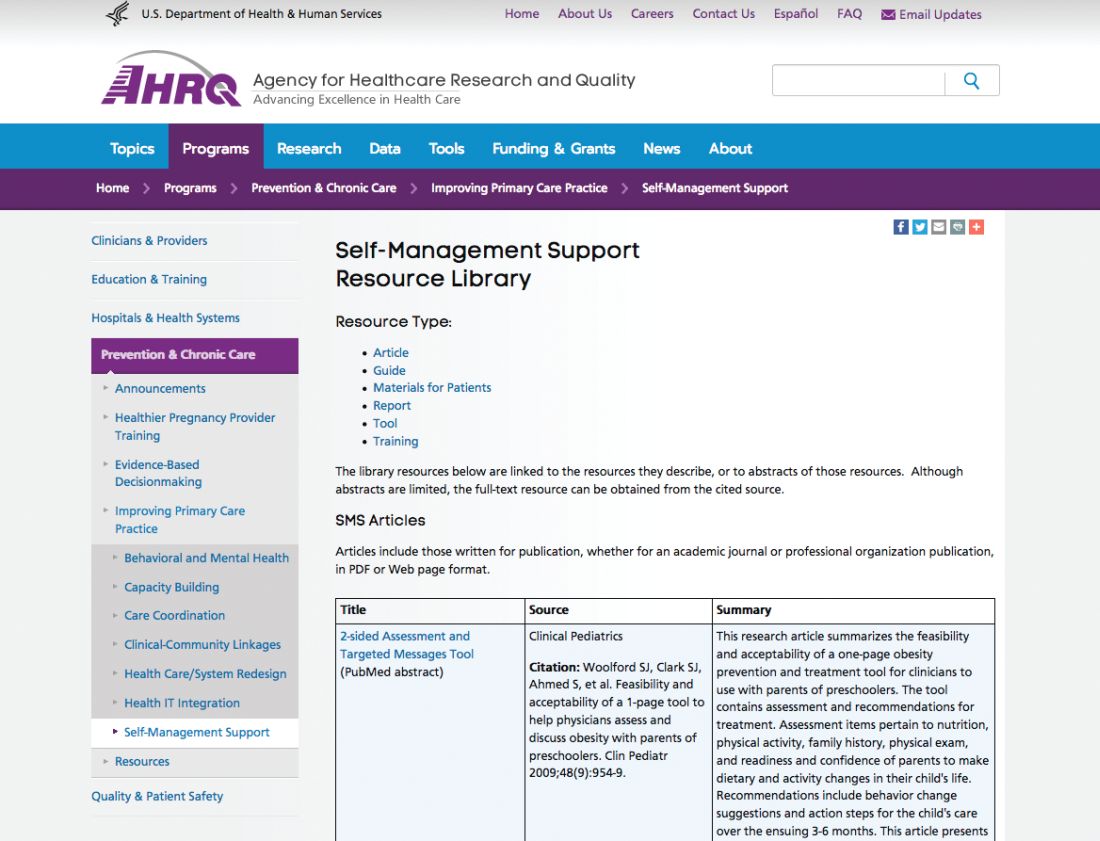This is the tenth in a series of articles from the National Center for Excellence in Primary Care Research (NCEPCR) in the Agency for Healthcare Research and Quality (AHRQ). This series introduces sets of tools and resources designed to help your practice.
An important part of self-management (last month’s article) is medication management, often augmented by the use of a portal and always cognizant of the importance of medication reconciliation and drug interactions. These latter issues can be addressed with health information technology (health IT), which will be discussed the next two columns. This month, we examine some of AHRQ’s other tools and resources to assist with medication management.
Patient self-management is a key part of medication management. The Self-Management Support Resource Library was developed to help primary care team members learn about self-management support and develop their self-management support skills in working with chronically ill patients. Videos address the what, why, and how of self-management support to help practices improve this important aspect of comprehensive primary care. Many physicians find the Patient Self-Management Support of Chronic Conditions: Framework for Clinicians Seeking Recertification Credit (MOC Part IV & PI-CME) helpful as it provides a free, self-contained framework for clinicians to design their own quality improvement project.Patient understanding of the medications and medication schedule is important, and therefore health literacy key. The AHRQ Health Literacy Universal Precautions Toolkit – 2nd edition can help primary care practices reduce the complexity of health care, increase patient understanding of health information, and enhance support for patients of all health literacy levels. Also available are the companion guide, Implementing the AHRQ Health Literacy Universal Precautions Toolkit: Practical Ideas for Primary Care Practices, and a crosswalk showing how implementing health literacy tools can help meet standards for patient-centered medical home certification or recognition or meet Accreditation Canada standards.
Clearly stating medication instructions improves patient understanding and possibly reduces errors while improving adherence. Explicit and Standardized Prescription Medicine Instructions offers tested instructions for pills simplify complex medicine regimens by using standard time periods for administration. These instructions have also been translated into Chinese, Korean, Russian, Spanish, and Vietnamese.
Finally, How to Create a Pill Card helps users create an easy-to-use “pill card” for anyone who has a hard time keeping track of their medicines. Step-by-step instructions, sample clip art, and suggestions for design and use will help to customize a reminder card.
These and other tools can be found at the NCEPCR Web site: www.ahrq.gov/ncepcr.
Dr. Ganiats is director of the National Center for Excellence in Primary Care Research at AHRQ, Rockville, Md.



